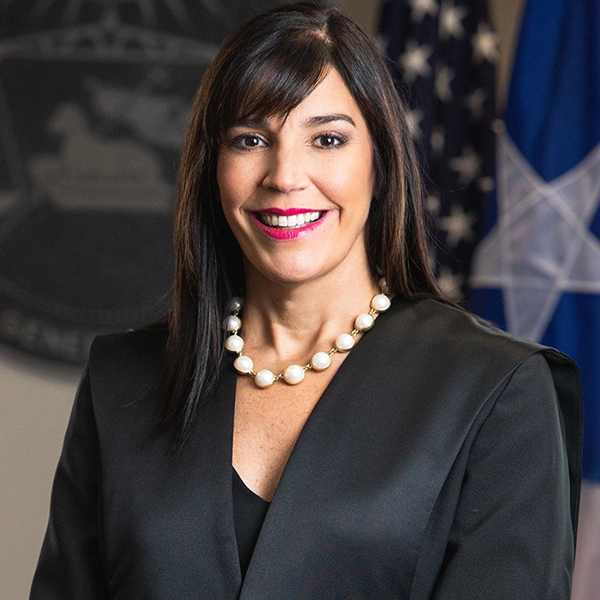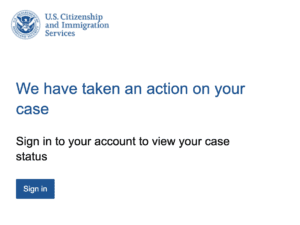Issues To Watch In Fla.’s Telehealth Genetic Counseling Bills | Blogs | Health Care Law Today
This article was originally published in Law360 on February 3, 2023 and is republished here with permission.
During its upcoming legislative session, Florida will consider whether to expand its telehealth statute to allow genetic counseling services to be conducted via telehealth technology.
In January, two bills were introduced to permit genetic counselors to utilize telehealth services in their practice. Signaling possible bipartisan and bi-chamber agreement, Republican Sen. Gayle Harrell introduced S.B. 218 and Democratic Rep. David Silvers introduced H.B. 117.
Florida’s legislative session began its committee hearing process in mid-December and will commence its full 60-day legislative session March 7. Both bills will now start the committee process in their respective chambers with the goal of receiving a majority vote in both the House and Senate.
H.B. 117 is currently awaiting hearing in the Florida House Healthcare Regulation Subcommittee. Likewise, S.B. 218 is awaiting its hearing in the Florida Senate’s Health Policy Committee.
If passed by the Florida Legislature and signed into law by the governor, the effective date of either bill is July 1.
Florida only recently enacted the Genetic Counseling Workforce Act. In 2021, the act created the licensed and regulated profession of genetic counseling within its Department of Health.
Prior to 2021, Florida did not require genetic counselors to obtain a professional license as a prerequisite to providing genetic counseling.
However, Florida now requires licensure before a genetic counselor may provide their services in the state. The act criminalizes the unlicensed practice of genetic counseling, making it a second degree misdemeanor to practice genetic counseling of any kind without a license.
The 2021 enacting legislation did not add genetic counseling to the list of services approved for telehealth. However, the legislative history indicates no opposition to genetic counseling services being offered via telehealth.
Its exclusion could have been simply an oversight or a desire by the Florida Legislature to move cautiously slow as it was creating a completely new licensed profession.
What Are Genetic Counselors?
Genetic counselors are health care professionals who have specialized education and training in the field of medical genetics.
Genetic counselors work with patients to evaluate and assess risks for certain genetic conditions they may possess and then work with those patients to provide counseling and education about the condition and how it might affect them.
Through the collection and study of a patient’s family history, a genetic counselor can provide patients important information about certain genetic traits that could affect their family or them including the risk of an inherited condition, birth defect or unique genetic mutation that could signal a greater susceptibility of developing certain diseases.
Parents often use genetic counseling where there is concern for a child’s genetic health either due to a parent’s genetic condition or if the child is demonstrating symptoms of a specific ailment. Likewise, genetic counseling is useful for adults in identifying predispositions for cardiovascular, cancer, or mental health conditions.
Genetic counseling continues to be a growing industry, and according to the National Society of Genetic Counselors, 31 states now have a licensing process for genetic counselors. Genetic counselors are often employed by hospitals, universities, research facilities, private practices, labs and a variety of clinical settings.
The NSGC describes genetic counselors as “not doctors” but those having advanced training in medical genetics and counseling to guide patients on inherited diseases and conditions.
Moreover, the Florida Association of Genetic Counselors states on its website that “genetic counselors work with physicians, as part of a multidisciplinary team, or independently, to provide genetics services to families and/or individuals.”
Section 483.911 of Florida Statutes defines genetic counseling as the process of advising an individual or a family affected by or at risk of genetic disorders to include:
- Obtaining and evaluating individual and familial medical histories to determine genetic risk for genetic or medical conditions and diseases in a patient, his or her offspring, and other family members;
- Discussing the features, natural history, means of diagnosis, genetic and environmental factors, and management of risk for genetic or medical conditions and diseases; and
- Identifying, ordering and coordinating genetic laboratory tests and other diagnostic studies as appropriate for a genetic assessment.
Florida’s Licensing Requirements for Genetic Counselors
To be awarded a license in Florida a genetic counselor must have:
- Been awarded a master’s degree in genetic counseling or a doctoral degree from a medical genetics training program;
- Passed an examination to be certified by such by either the American Board of Genetic Counseling, the American Board of Medical Genetics or Genomics, the Canadian Association of Genetic Counsellors, the American Board of Medical Genetics and Genomics or the Canadian College of Medical Geneticists; and
- Demonstrated good moral character.
Licenses issued under the act are valid for two years.
Being a right-to-work state, it is uncommon for Florida to create a completely new professional licensing regimen, but the Legislature, in expressing its belief that incompetent genetic counseling practices are a danger to the public, included legislative intent language in the act which states:
The sole legislative purpose for enacting this part is to ensure that every genetic counselor practicing in this state meets minimum requirements for safe practice. The Legislature finds that the delivery of genetic counseling services by unskilled and incompetent persons presents a danger to public health and safety. Because it is difficult for the public to make informed choices related to genetic counseling services and since the consequences of uninformed choices can seriously endanger public health and safety, it is the intent of the Legislature to prohibit the delivery of genetic counseling services by persons who possess less than minimum competencies or who otherwise present a danger to the public.
Potential Hurdles to Passage
At this writing, there is no recorded opposition to either bill. However, one of the most important considerations for both genetic counseling and telehealth is the critical importance of privacy and confidentiality.
Lawmakers will undoubtedly carefully consider privacy and security issues when considering these legislative proposals. Electronic health systems consistently grapple with privacy concerns as there is always a privacy risk that there will be a loss of control during the collection, use and transmission of data.
With any transfer of data, the potential for a security breach exists and the elimination, or least maximum mitigation, of this risk is one of the largest challenges facing telehealth services providers.
Privacy preservation is especially important with genetic counseling as the process necessarily requires patients to divulge very private and personal information to the counselor not only about themselves but also other members of their family.
When a patient learns of a familial genetic condition, such information can affect not only the patient, but each biological member of the patient’s family. Thus, if a breach occurs during genetic counseling, it is not just the patient’s personal information being jeopardized but the personal information of the patient’s entire biological family.
As stated in Florida’s telehealth statute at the Section 456.47(2)(a) of the Florida Statute, a provider has the duty to practice in a manner consistent with his or her scope of practice and the prevailing professional standard of practice for a health care professional who provides in-person health care services to patients in this state.
This duty of care will apply to genetic counseling as well, and any service conducted through telehealth technology must be secure, reliable and trustworthy.
Finally, the Florida Legislature will have to determine whether out-of-state genetic counselors must be licensed in Florida before they may provide services to Florida patients via telehealth. If a genetic counselor may offer services via telehealth, there is no logistical hurdle to providing those services across state lines.
Under Section 456.47(4) of Florida’s telehealth statute, an out-of-state provider may register to provide telehealth services in Florida if he or she currently holds an active, unencumbered license issued by another state and that license is substantially similar to a license issued to a Florida-licensed provider.
Thus, if the law is passed, an out-of-state genetic counselor who is currently licensed in another state will be able to use the same process as other telehealth providers to obtain a Florida telehealth registration. However, 29 states do not have a licensing process for genetic counselors practicing in their states: Genetic counselors in those states will not able to provide proof of an out-of-state license.
Will Florida permit out-of-state genetic counselors who are not able to obtain a license in their own state of domicile to practice genetic counseling in Florida via telehealth? Unknown, but likely not.
The Legislature was very clear that genetic counselors must be competent, and the state’s method of determining competency will be through licensure.
It is probable that the Legislature will permit only licensed genetic counselors to operate in Florida, via telehealth or otherwise. Genetic counselors who reside in nonlicensure states will likely be required to obtain a Florida license prior to offering services.
Florida’s Legislature will adjourn no later than May 5 so the fate of S.B. 218 and H.B. 117 will be known in the near future.






